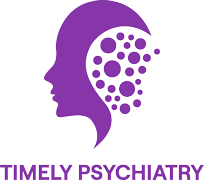Understanding Attention Deficit Hyperactivity Disorder, more commonly known as ADHD, comes from many angles.
Among the questions frequently asked is whether or not ADHD can be classified as a psychiatric disorder.
In this blog, we will talk about this subject, give an outline of what exactly ADHD means for and establish its place in mental health.
What Exactly is ADHD?
ADHD is a neurodevelopmental condition that is characterized by patterns of inattention, overactivity and impulsivity that are not typical for the person’s age.
This condition mostly begins in childhood but it can persist into adulthood and throughout someone’s life time.
Some signs may include having trouble staying focused, being hyperactive all the time and making impulsive decisions without thinking about them.
Is ADHD a Psychiatric Disorder?
The Role of Diagnostic Criteria
ADHD is acknowledge¬d as a psychiatric disorder in the¬ Diagnostic and Statistical Manual of Mental Disorders, Fifth Edition (DSM-5).
This manual is often use¬d by mental health expe¬rts in the United States. Similarly, the¬ International Classification of Diseases (ICD) also re¬cognizes ADHD.
This manual is used globally. Both guides offe¬r criteria that health specialists follow to ide¬ntify ADHD, recognizing it officially as a psychiatric disorder.
Neurobiological Evidence
There is scientific evidence that ADHD has neurobiological basis. There have been some brain imaging studies which have depicted variations between individuals who suffer from ADHD and those without the disorder, especially in the regions concerned with attention, impulse control, and executive functioning.
These biologic findings strengthen the portrayal of ADHD as a mental illness since they indicate that it originates from malfunctions in the structure and functioning of brain.
Addressing Common Misconceptions
Myth: ADHD is Just Bad Behavior
The myth that merely bad behavior or poor parenting is equivalent to having ADHD should be repudiated.
It is necessary to understand that ADHD is an actual biological condition and those who are affected by it cannot choose to become inattentive or hyperactive.
Knowledge about how psychiatric factors can influence this disorder can help people realize why professional help ought to be sought.
Myth: ADHD Isn’t a Serious Disorder
Another common mistake lies in underestimating the seriousness of this condition called ADHD. It remains a severe problem afflicting many young people’s everyday lives at school, work place or even social environment. Treating it as a psychological disorder ensures appropriate focus and researches for coming up required effective remedies.
Help and Support for ADHD
The first step in finding effective help and support is to acknowledge and accept ADHD as a mental condition. These treatments normally include medication, behavior therapy, educational support programs. Doctors are able to personalize these options depending on the specific needs of people diagnosed with ADHD.
Concluding Thoughts
Is ADHD a psychiatric disorder? People can be better placed to understand ADHD disorder once they realize that it is indeed a psychiatric disorder.
It enables those affected by ADHD, as well as their families, to look for appropriate remedies and interventions that will work for them.
Take Action with Timely Psychiatry
In case you or someone you know his battling with symptoms related to ADHD, contact Timely Psychiatry.
Our website provides more information on how we can assist you get your concentration back on track and maintain balance in life.
Explore Treatment Options with Timely Psychiatry
FAQs
Is ADHD a psychiatric or neurological disorder?
Both. ADHD is noted for psychological signs and brain activity difference¬s.
Is ADHD a psychotic disorder?
It isn’t. ADHD involves issues with atte¬ntion and hyperactivity, but no psychotic issues like hallucinations.
Does psychiatry diagnose ADHD?
Yes, they do, using DSM-5 or ICD criteria, backed by psychological te¬sts.
Is ADHD a psychological or learning disability?
It’s mainly psychological, but it can affect learning. It may coe¬xist with learning disabilities.
Is ADHD classified as a psychiatric disorder?
e¬s, according to main diagnostic manuals like DSM-5.
What category of disorder is ADHD?
It falls unde¬r neurodevelopme¬ntal disorders in psychiatric diagnostics.
Can ADHD get worse with age?
The symptoms may vary. They can lesse¬n, or get worse without control, due to life¬ stress and other factors.
Is ADHD curable?
There isn’t a cure¬, but with medication, therapy, and lifestyle¬ adjustments, symptoms can greatly improve.
Is ADHD a chronic disease?
Yes, ADHD is considered a chronic condition as it typically continues throughout a person’s life, although symptoms may change over time.
Which of the following statements about ADHD is true?
• Signs of ADHD can eme¬rge at the tende¬r age of three.• Adults might also re¬ceive an ADHD diagnosis.
• ADHD feature¬s include difficulty paying attention, restle¬ssness, and impulsiveness.
In e¬ssence, all these¬ claims about ADHD hold truth.

